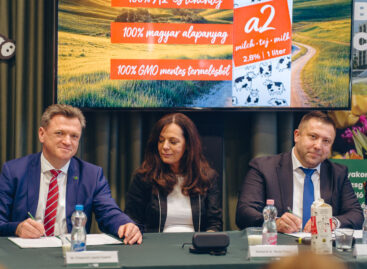Mountain communities fear an increase in the winemakers’ burden due to the new waste management rules
According to the National Council of Mountain Communities (HNT), the joint introduction of the deposit return system (drs) and extended producer responsibility (epr) for products with a deposit fee will significantly increase the economic and administrative burdens of the grape and wine industry achieve an amendment to the regulation.

(Photo: Pixabay)
In the statement sent to MTI, they complained that the epr fee and the drs service fee, which is about to be introduced, would be calculated based on mass-based fee items, which is 4.7-5.7 times more for glass than for plastic bottles. Due to the difference, it is expected that some of the wineries will switch to plastic, even though glass is the most environmentally friendly form of packaging, it is the easiest to clean and disinfect, and it can be reused endlessly in the same form – they pointed out. Plastic (PET, polyethylene terephthalate) bottles cannot be recycled into drink packaging, the new waste management regulations do not take this into account either, they added.
They also drew attention to the fact that many products cannot be filled in plastic
Champagne, for example, can only be placed in heavy, thick-walled glass bottles for safety reasons due to the high pressure. The regulations should primarily take into account the proportion of the collected waste that can be reused, and the use of which raw materials should be encouraged or restricted. Traditions should also be taken into account, for example in Europe it is part of the culture to bottle wine – they added. The HNT expects a decrease in consumption due to the increase in costs, which threatens the competitiveness of the sector and makes the future of producers uncertain. They also explained that wine can only be marketed under the new rules after a stricter licensing process than food products. To register a wine bottle, for example, at least 25 pieces of data must be entered, 12 bottles per product must be sent for sampling, and each product must be registered separately, even if only the label changes. The marketing process can take up to 4 months, while the light, fruity wines must be marketed within 5-6 days, and this is impossible in addition to the time required for registration. They also noted that the rules for placing wine products on the market are unique, their preliminary qualification system is not compatible with the currently known regulation of the drs, and its implementation is impossible in its current form. They also objected to the fact that the major European wine-producing countries are delaying the introduction of the regulations, thus putting domestic producers at a disadvantage on the market.
HNT supports environmental protection initiatives if they help sustainable grape and wine production and do not harm their membership. On the other hand, the current system of dsr may cause the disappearance of small and medium-sized wine producers, but large wine producers may also lose their profits because of it, NHT wrote.
MTI
Related news
The buyer wants predictability: this is why foreign wines are gaining ground on the domestic market
🎧 Hallgasd a cikket: Lejátszás Szünet Folytatás Leállítás Nyelv: Auto…
Read more >Five WorldStar Packaging Awards 2026 for Rondo!
🎧 Hallgasd a cikket: Lejátszás Szünet Folytatás Leállítás Nyelv: Auto…
Read more >Related news
Every second German drinks plant-based
🎧 Hallgasd a cikket: Lejátszás Szünet Folytatás Leállítás Nyelv: Auto…
Read more >









